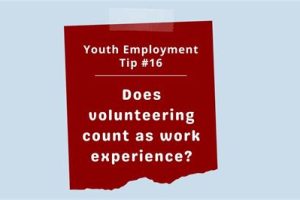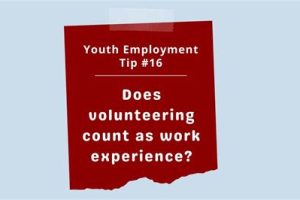Table of Contents
Discover the transformative power of At Risk Youth Volunteer Programs. Engage in meaningful activities that empower and support vulnerable young individuals. Make a difference by mentoring, tutoring, and providing guidance to help them overcome challenges and build a brighter future. Join now and become a catalyst for positive change in their lives.
At Risk Youth Volunteer Programs offer a unique opportunity for individuals to make a lasting impact on the lives of vulnerable young people. These programs not only provide valuable support and guidance to at-risk youth, but they also offer volunteers a chance to develop their skills and gain valuable experience in working with diverse populations. Furthermore, by participating in these programs, volunteers can contribute to the overall well-being of their communities and foster a sense of empathy and understanding among society. In this paragraph, we will explore the various benefits and opportunities that At Risk Youth Volunteer Programs have to offer, shedding light on the profound impact they can have on both the volunteers and the youth they serve.
Introduction
At-risk youth are individuals who face various challenges in their lives, such as poverty, violence, substance abuse, or family instability. These young people often lack access to proper education, healthcare, and support systems, which can hinder their personal growth and development. To address these issues, numerous volunteer programs have been established to provide support and guidance to at-risk youth. These programs aim to empower young individuals, enhance their skills, and help them lead a successful and fulfilling life. In this article, we will explore the importance of at-risk youth volunteer programs and their impact on the lives of these vulnerable individuals.
The Need for At-Risk Youth Volunteer Programs
At-risk youth face numerous challenges that can significantly impact their future prospects. Without proper support and guidance, they may struggle to break free from the cycle of poverty, crime, or addiction. Volunteer programs specifically designed for at-risk youth play a crucial role in addressing these challenges by providing holistic support and opportunities for personal growth. These programs often focus on areas such as education, mentorship, job readiness, and emotional well-being.
Educational Support
One of the key aspects addressed by at-risk youth volunteer programs is educational support. Many at-risk youth struggle with academic performance due to a lack of resources, unstable living conditions, or other external factors. Through tutoring, homework assistance, and after-school programs, volunteers help bridge the educational gap and provide these young individuals with the necessary tools to succeed academically.
Mentorship and Guidance
Mentorship is another critical component of at-risk youth volunteer programs. By connecting at-risk youth with caring and supportive mentors, these programs offer guidance, role models, and positive influences in their lives. Mentors not only provide emotional support but also help young individuals set goals, develop life skills, and make informed decisions that can positively impact their future.
Benefits for At-Risk Youth
The impact of at-risk youth volunteer programs extends beyond merely addressing immediate challenges. These programs provide a range of benefits that contribute to the long-term well-being and success of at-risk youth.
Increased Self-Confidence
Volunteer programs create a safe space for at-risk youth to explore their capabilities, strengths, and talents. Through various activities and projects, they can develop new skills, discover their potential, and gain a sense of accomplishment. This increased self-confidence enables them to face challenges with resilience and believe in their ability to succeed.
Expanded Support Network
For many at-risk youth, volunteer programs become a source of a supportive network. These programs foster connections and relationships with volunteers, mentors, and other young individuals facing similar challenges. By expanding their support network, at-risk youth gain access to resources, guidance, and encouragement from people who genuinely care about their well-being.
Improved Educational and Career Opportunities
Volunteer programs for at-risk youth often focus on enhancing their educational and job readiness skills. Through workshops, vocational training, and internship opportunities, these programs equip young individuals with the necessary tools to pursue higher education or secure meaningful employment. By improving their qualifications and skills, at-risk youth can break free from the cycle of poverty and create better opportunities for themselves.
The Impact of At-Risk Youth Volunteer Programs
The positive impact of at-risk youth volunteer programs extends not only to the individual participants but also to the community as a whole.
Reduced Crime and Substance Abuse
By providing at-risk youth with positive role models, structured activities, and a supportive environment, volunteer programs contribute to reducing crime rates and substance abuse. These programs offer alternative paths for young individuals, shifting their focus from negative behaviors towards personal growth and development.
Empowerment and Community Engagement
At-risk youth volunteer programs empower young individuals to become active participants in their communities. As they develop new skills and gain confidence, they are more likely to engage in community service projects, volunteer opportunities, and leadership roles. By actively contributing to their communities, these young individuals create a positive impact and inspire others to do the same.
Breaking the Cycle of Poverty
One of the significant long-term impacts of at-risk youth volunteer programs is breaking the cycle of poverty. By equipping young individuals with educational support, job readiness skills, and mentorship, these programs provide them with the tools to pursue higher education, secure stable employment, and improve their economic circumstances. This, in turn, positively influences future generations, creating a ripple effect that lifts entire families out of poverty.
Conclusion
The significance of at-risk youth volunteer programs cannot be overstated. These programs provide a lifeline for vulnerable young individuals, offering support, guidance, and opportunities for personal growth. By addressing various challenges faced by at-risk youth, such as educational gaps, lack of mentorship, and limited resources, these programs empower them to overcome obstacles and lead successful lives. The impact of these programs extends beyond individual participants, positively influencing communities and breaking the cycle of poverty. It is crucial that we recognize and support these volunteer programs to ensure a brighter future for at-risk youth.
Mentoring and Tutoring
Volunteer programs focused on mentoring and tutoring offer at-risk youth a valuable support system, assisting them academically and emotionally. By establishing meaningful relationships with mentors, these young individuals gain the guidance and encouragement needed to overcome obstacles and excel in their education. Through personalized attention and targeted assistance, mentoring and tutoring programs help cultivate confidence and a sense of belonging in the lives of at-risk youth.
Skill Development
At-risk youth volunteer programs recognize the importance of equipping young individuals with essential life skills. These initiatives provide diverse opportunities for at-risk youth to explore various vocational, technical, and artistic skills, thereby enhancing their employability and career prospects. By retaining and broadening their interests, these programs inspire a sense of accomplishment and self-confidence in at-risk youth, fostering a greater likelihood of long-term success.
Prevention and Intervention Programs
Volunteer programs addressing prevention and intervention fill a crucial role in helping at-risk youth avoid negative influences and potential harm. These initiatives focus on addressing issues such as substance abuse, violence, and exploitation through educational sessions, workshops, and counseling. By promoting self-awareness, healthy decision-making, and effective coping mechanisms, these programs empower at-risk youth to make positive choices and navigate challenging situations.
Arts and Recreation
Arts and recreation programs for at-risk youth provide a creative outlet, cultivate self-expression, and offer opportunities for personal and social development. Through engagement in artistic activities, such as music, drama, or visual arts, young individuals can discover their talents, develop discipline, and build resilience. These activities foster a sense of belonging, teamwork, and personal growth, allowing at-risk youth to explore their potential beyond their circumstances.
Community Outreach and Service
Volunteer programs that emphasize community outreach and service provide at-risk youth with opportunities to contribute positively to their communities. Through participating in volunteer work, community cleanups, or fundraising events, these young individuals develop a sense of responsibility and empathy. By being a part of meaningful projects, at-risk youth learn about teamwork, social responsibility, and the importance of giving back, nurturing a stronger connection to their community.
Empowerment through Entrepreneurship
Entrepreneurship programs tailored to at-risk youth offer empowerment through skill development, financial literacy, and mentorship. These programs help young individuals develop entrepreneurial mindsets, providing them with the tools and resources to start their own businesses and become financially independent. By fostering creativity, resourcefulness, and self-reliance, these programs enable at-risk youth to build a brighter future for themselves and their communities.
Re-entry and Rehabilitation
Volunteer programs focused on re-entry and rehabilitation support at-risk youth who have been involved in the justice system. These initiatives aim to break the cycle of reoffending by providing guidance, counseling, and vocational training. By offering a second chance, these programs empower these young individuals to reintegrate into society, avoid further involvement in criminal activities, and pursue productive, fulfilling lives.
Mentorship by Successful Role Models
Volunteer programs that involve successful role models as mentors foster inspiration, guidance, and motivation in at-risk youth. By connecting young individuals with mentors who have overcome similar challenges and achieved personal and professional success, these programs provide hope and a roadmap for their own futures. The presence of positive role models helps at-risk youth develop resilience, grit, and ambition, enabling them to envision and strive for a brighter, more prosperous future.
Conclusion
At-risk youth volunteer programs serve as transformative experiences, empowering young individuals to overcome adversity and unlock their full potential. Whether through mentoring, skill development, community service, or access to role models, these programs provide a platform for at-risk youth to thrive and make positive contributions. By investing in their personal growth and development, these programs create a ripple effect that uplifts individuals, families, and communities at large.
Volunteer programs aimed at working with at-risk youth play a crucial role in addressing the complex challenges faced by this vulnerable population. These programs provide a platform for dedicated individuals to make a positive impact on the lives of young people who may be facing various adversities. By offering mentorship, support, and guidance, these initiatives strive to empower at-risk youth and steer them towards a path of resilience and success.
Here are some key points about the significance and benefits of at-risk youth volunteer programs:
- Professional Guidance: At-risk youth volunteer programs often involve professionals who possess the necessary skills and expertise to work with young people facing challenging circumstances. These professionals can offer guidance in areas such as education, employment, mental health, and personal development, helping at-risk youth navigate the complexities of their lives.
- Mentorship Opportunities: Volunteer programs present an opportunity for at-risk youth to establish meaningful relationships with caring mentors. Mentors can act as positive role models, offering guidance, encouragement, and support while helping young people develop essential life skills and fostering their self-esteem.
- Community Engagement: Volunteer programs that target at-risk youth actively engage with the local community, creating a sense of belonging and connection for young individuals who may feel isolated or marginalized. By involving the community, these programs encourage the development of strong support networks, providing at-risk youth with additional resources and opportunities.
- Prevention and Intervention: At-risk youth volunteer programs not only focus on prevention by equipping young people with the skills needed to make positive choices, but they also intervene when necessary. Volunteers are trained to identify warning signs of risky behaviors or potential crises, allowing for early intervention and support for at-risk youth who may be in immediate need of assistance.
- Empowerment and Resilience: By participating in volunteer programs, at-risk youth gain a sense of empowerment and resilience. Through the support and guidance received from volunteers, young individuals develop the necessary skills to overcome obstacles, build their confidence, and make informed decisions about their futures.
In conclusion, at-risk youth volunteer programs provide a valuable platform for professionals and dedicated individuals to make a positive impact on the lives of vulnerable young people. These programs offer guidance, mentorship, community engagement, prevention, intervention, and empowerment, all of which are crucial in helping at-risk youth navigate their challenges and strive for a brighter future.
Thank you for visiting our blog and taking the time to learn more about At Risk Youth Volunteer Programs. We understand that you are looking for ways to make a positive impact on the lives of young people who are facing challenging circumstances. In this closing message, we would like to highlight the significance of these programs and encourage you to consider getting involved.
First and foremost, At Risk Youth Volunteer Programs play a crucial role in providing much-needed support and guidance to vulnerable young individuals. These programs offer a safe and nurturing environment where they can find solace, build resilience, and develop essential life skills. By joining as a volunteer, you can become a mentor and a role model for these youth, helping them navigate through difficult situations and empowering them to make positive choices. Your presence and dedication can make a significant difference in their lives, giving them hope and a sense of belonging.
Moreover, volunteering in At Risk Youth Programs not only benefits the young individuals but also enriches your own life. Engaging in such programs allows you to gain a deeper understanding of the challenges faced by at-risk youth and the systemic issues that contribute to their circumstances. Through interaction and collaboration with other volunteers, professionals, and organizations, you will have the opportunity to enhance your own skills, broaden your perspective, and cultivate empathy. Volunteering is not just about giving; it is also about personal growth and learning, as you contribute to creating a more inclusive and compassionate society.
In conclusion, At Risk Youth Volunteer Programs offer a way for you to make a lasting impact on the lives of young people who are facing adversity. By becoming a volunteer, you can provide the support and guidance they need to overcome challenges, develop essential life skills, and build a brighter future. At the same time, volunteering offers you an opportunity for personal growth and learning, as you gain a deeper understanding of the issues affecting at-risk youth and contribute to positive change. We encourage you to take the next step and get involved in an At Risk Youth Volunteer Program today. Together, we can make a difference!
Video At Risk Youth Volunteer Programs
Here are some commonly asked questions about At Risk Youth Volunteer Programs:
What are At Risk Youth Volunteer Programs?
Why should I consider volunteering for At Risk Youth Programs?
What types of activities can I expect to be involved in as a volunteer?
Are there any requirements or qualifications to volunteer for these programs?
How can I find At Risk Youth Volunteer Programs near me?
At Risk Youth Volunteer Programs are initiatives that provide opportunities for individuals to volunteer their time and skills to support and mentor young people who are considered at risk. These youth may face various challenges such as poverty, homelessness, substance abuse, or involvement in the criminal justice system. Volunteer programs aim to provide guidance, positive role models, and resources to help these youth overcome obstacles and build a brighter future.
Volunteering for At Risk Youth Programs offers a chance to make a meaningful impact on the lives of young people facing difficult circumstances. By dedicating your time, knowledge, and support, you can help empower these youth, inspire them to make positive choices, and provide them with opportunities they may not have otherwise. It is a rewarding experience that allows you to contribute to your community and potentially change the trajectory of a young person’s life.
As a volunteer in an At Risk Youth Program, you may engage in a range of activities depending on the specific program and its goals. These can include mentoring and tutoring sessions, organizing recreational activities, providing emotional support, assisting with life skills development, facilitating workshops, and advocating for the needs of the youth. Your role may involve building relationships, fostering a safe and supportive environment, and helping the youth develop their strengths and talents.
Requirements and qualifications can vary depending on the organization and program you choose to volunteer with. Commonly, volunteers are expected to undergo a background check and complete any necessary training or orientation sessions to ensure they are equipped to work with at-risk youth. Some programs may have age restrictions or specific skill requirements, while others may only require a genuine commitment to making a positive difference in young lives.
There are several ways to find At Risk Youth Volunteer Programs in your area. You can start by contacting local community centers, schools, or youth organizations to inquire about any volunteer opportunities they offer. Online directories and platforms dedicated to connecting volunteers with organizations, such as VolunteerMatch or Idealist, can also provide a comprehensive list of available programs. Additionally, reaching out to local government agencies or non-profit organizations focused on youth services can help you discover suitable volunteer opportunities.
Remember, volunteering for At Risk Youth Programs requires dedication, empathy, and a commitment to supporting young people who may be facing challenging circumstances. By offering your time and skills, you can make a significant difference in their lives and contribute to building a brighter future for all.






